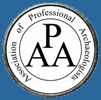Excerpt from CTV News:
"The stay-at-home order, which by law allows people to only leave their home for essential reasons, goes into effect as of 12:01 a.m. on April 8.
Ford said the stay-at-home order will be very similar to the one that was put into effect in January, with a few exceptions.
This is the second time Ontario has been placed under a stay-at-home order.
Here are some answers to the most frequently asked questions about the stay-at-home order:
How long will the stay-at-home order be in effect?
Ontario will be under a provincewide stay-at-home order for at least 28 days, which is until May 6.
The order can be extended if the government deems it necessary.
What is considered an essential trip?
The Ontario government admitted during the first stay-at-home order back in January they can't determine what is essential for every person in the province.
They provided a list of categories people should consider before leaving their home, which include food, health-care services (including medication and vaccines), exercise, or work when someone’s job can't be done at home.
Here's a more detailed list of what the Ontario government considers essential.
... (more in original article)...
What are the rules for the construction industry?
According to the government, construction activities or projects and related supporting services, including demolition and land surveying, are allowed."
Full article found here.



